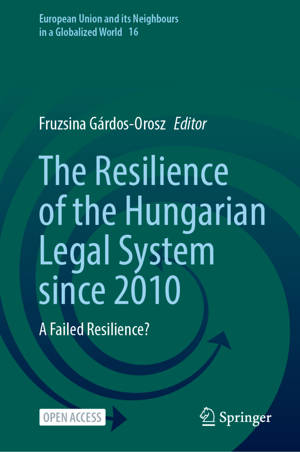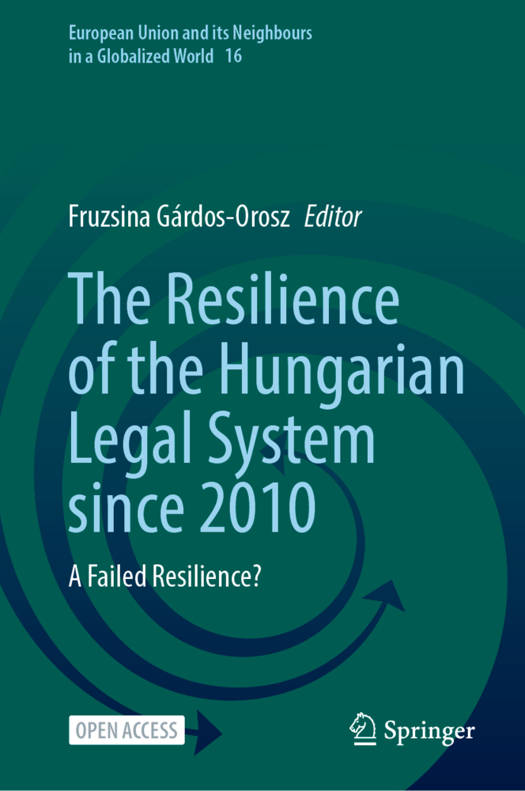
- Retrait gratuit dans votre magasin Club
- 7.000.000 titres dans notre catalogue
- Payer en toute sécurité
- Toujours un magasin près de chez vous
- Retrait gratuit dans votre magasin Club
- 7.000.0000 titres dans notre catalogue
- Payer en toute sécurité
- Toujours un magasin près de chez vous
The Resilience of the Hungarian Legal System Since 2010
A Failed Resilience?
Description
This open access book explains the factors that cause the poor functioning or failure of certain legal institutions or the success of others in the current Hungarian legal system after the 2010 transition from liberal to illiberal/populist democracy. The authors argue in most regulatory areas that reform is needed in lawmaking or in the application and practice of law, because there are systemic problems with the law's capacity for doctrinal resilience, which lead to the primacy of other regulators than law, such as the populist politics. An understanding of these processes is essential for the implementation of sound law and legal policy reforms, for the maintenance of the legal guarantee system and for the successful development of institutions protecting and providing the fundamental rights.
The volume documents how the Hungarian legal system changed after 2010, on the one hand, and conceptualises these changes with the help of 'resilience', on the other hand.
Spécifications
Parties prenantes
- Editeur:
Contenu
- Nombre de pages :
- 240
- Langue:
- Anglais
- Collection :
- Tome:
- n° 16
Caractéristiques
- EAN:
- 9783031704505
- Date de parution :
- 12-11-24
- Format:
- Livre relié
- Format numérique:
- Genaaid
- Dimensions :
- 164 mm x 236 mm
- Poids :
- 508 g

Les avis
Nous publions uniquement les avis qui respectent les conditions requises. Consultez nos conditions pour les avis.





